The late Thomas Kinkade said of his 2003 rendering The Old Fishing Hole, “Perhaps the best thing about childhood is what we make of it in our memories. I suppose that in the living there were good times and bad, but in the memory, it’s the good times that live on with a certain radiance.”
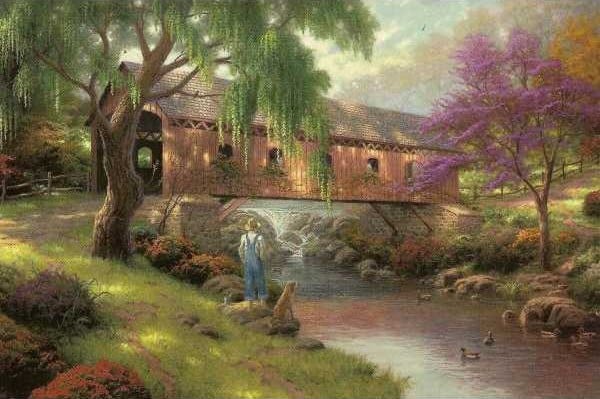
Growing up in farm country, my friends and I spent many a hot summer day around, or in, a nearby pond or the brook down back. Ponds and streams are essential to life in rural America. Farm ponds supply water for livestock and vegetable gardens. They also supply water for putting out fires. Ponds served as sources of block ice in the years before electric refrigerators. Streams that fed into the ponds kept them full.
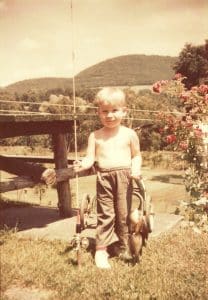 Beyond their practical virtues, ponds and streams inspired plenty of my free play. The brook behind my grandparents’ house meandered through their property and formed a nice pool at just about every major turn. Usually no more than one or two feet deep, each pool held sizable brook fish and an occasional small trout. Once our chores were done, my friends and I would pack sandwiches and a thermos of lemonade, grab our open reel poles and half-empty tackle-boxes, take a hunk of bacon out of the refrigerator to use as bait, and head off toward our favorite fishing holes for a few hours of fun.
Beyond their practical virtues, ponds and streams inspired plenty of my free play. The brook behind my grandparents’ house meandered through their property and formed a nice pool at just about every major turn. Usually no more than one or two feet deep, each pool held sizable brook fish and an occasional small trout. Once our chores were done, my friends and I would pack sandwiches and a thermos of lemonade, grab our open reel poles and half-empty tackle-boxes, take a hunk of bacon out of the refrigerator to use as bait, and head off toward our favorite fishing holes for a few hours of fun.
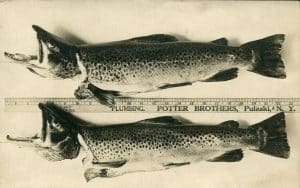 Often the fish weren’t particularly hungry, so we’d eat our lunches first and then move on to another pond to try our luck there. On a good day, we’d catch bluegill and largemouth bass and an occasional snapping turtle that couldn’t resist our favorite lures—the Jitterbug Frog and the Hula Popper. The lures in the collections of the National Museum of Play at The Strong always remind me of these childhood outings. Sometimes though, nothing would bite and we’d seek out other adventures until the sun started sinking and the fish started rising again.
Often the fish weren’t particularly hungry, so we’d eat our lunches first and then move on to another pond to try our luck there. On a good day, we’d catch bluegill and largemouth bass and an occasional snapping turtle that couldn’t resist our favorite lures—the Jitterbug Frog and the Hula Popper. The lures in the collections of the National Museum of Play at The Strong always remind me of these childhood outings. Sometimes though, nothing would bite and we’d seek out other adventures until the sun started sinking and the fish started rising again.
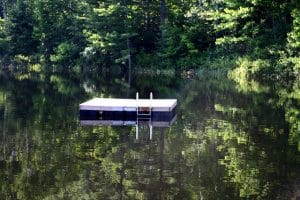 On really hot days, swimming usually beat out fishing as our leisure activity of choice. The resident turtles in our swimming holes always seemed more afraid of us than we were of them—we just had to be sure we didn’t step on them. Several area ponds even had anchored rafts most often made from simple wooden platforms buoyed by empty 55-gallon steel drums.
On really hot days, swimming usually beat out fishing as our leisure activity of choice. The resident turtles in our swimming holes always seemed more afraid of us than we were of them—we just had to be sure we didn’t step on them. Several area ponds even had anchored rafts most often made from simple wooden platforms buoyed by empty 55-gallon steel drums.
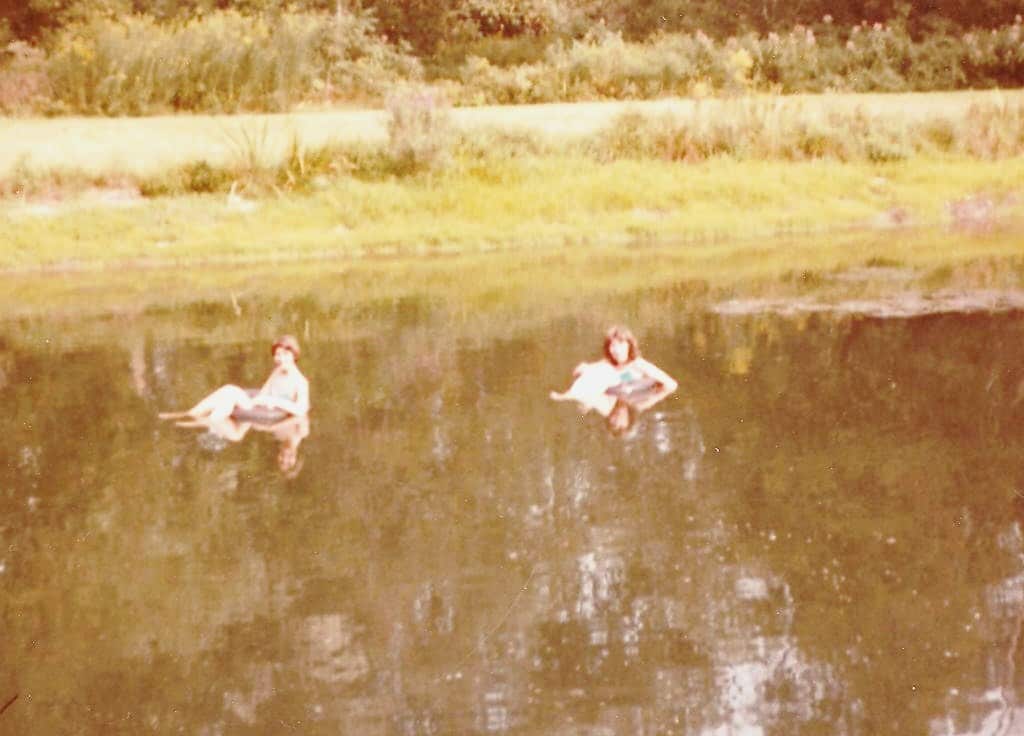 The ponds we grew up near served us well. They were there for the taking, and they gave us many hours of fun. I can’t imagine growing up without the joys of a country pond or stream. And I can’t think of a better way to spend a dog day in summer, can you?
The ponds we grew up near served us well. They were there for the taking, and they gave us many hours of fun. I can’t imagine growing up without the joys of a country pond or stream. And I can’t think of a better way to spend a dog day in summer, can you?
 Hours 10 a.m.–5 p.m. | Fri. & Sat. till 8 p.m.
Hours 10 a.m.–5 p.m. | Fri. & Sat. till 8 p.m.